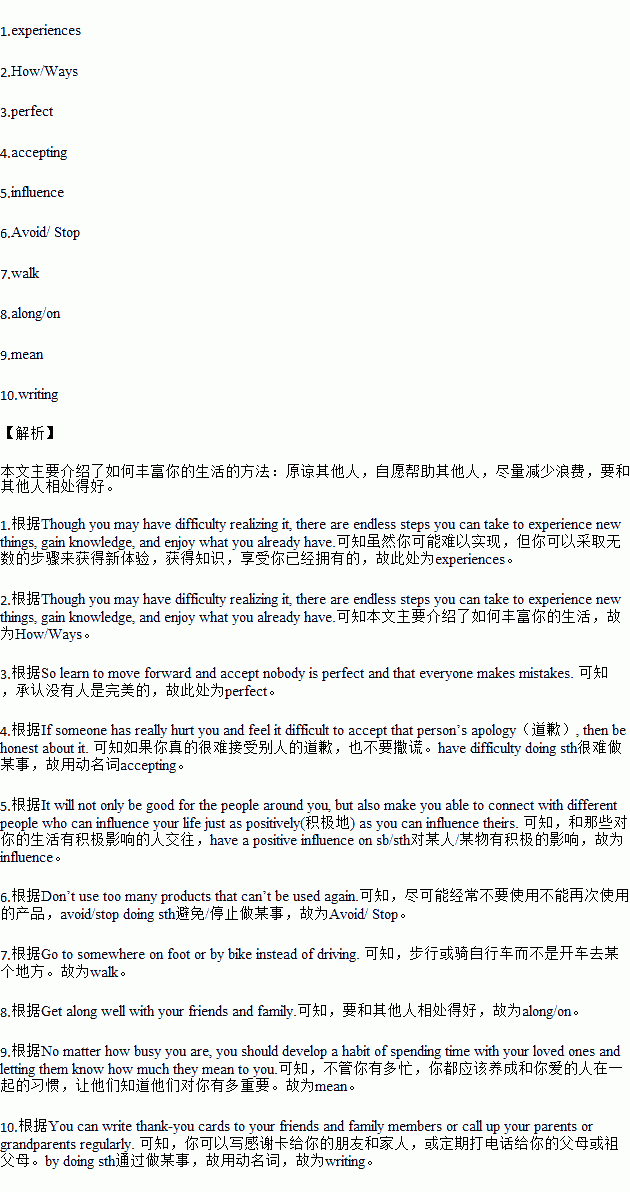题目内容
Enriching(使丰富) your life means making an effort to make your life as meaningful and happy as possible. Though you may have difficulty realizing it, there are endless steps you can take to experience new things, gain knowledge, and enjoy what you already have.
Learn to forgive others. If you often hate other people around you, then you won’t live a wonderful life. So learn to move forward and accept nobody is perfect and that everyone makes mistakes. If someone has really hurt you and feel it difficult to accept that person’s apology(道歉), then be honest about it. Don’t pretend(假装) that you’re okay and then go on complaining. This won’t get you very far.
Volunteer to help others. It will not only be good for the people around you, but also make you able to connect with different people who can influence your life just as positively(积极地) as you can influence theirs. You can work in a homeless shelter or help do the cleaning in your neighbourhood.
Try to be less wasteful. Trying to be not wasteful can help you become thankful and really enjoy the world around you more. You can use paper instead of plastic whenever you can. Don’t use too many products that can’t be used again. Go to somewhere on foot or by bike instead of driving. All these ideas make you less wasteful.
Get along well with your friends and family. No matter how busy you are, you should develop a habit of spending time with your loved ones and letting them know how much they mean to you. You can write thank-you cards to your friends and family members or call up your parents or grandparents regularly. If you’re not living in the same place, then often tell yourself to call just to say “hi”.
Title: Enrich Your Life
Meaning of a rich life | It means a meaningful and happy life. It helps people to have new 1., gain knowledge and enjoy their pleasant life. | |
2.to enrich your life | Forgive others. | Accept the fact that nobody is 3.. Don’t be dishonest about it if you really have difficulty 4. others’ apologies. |
Volunteer to help others. | Connect with someone who can have a positive 5. on your life. | |
Try to be less wasteful. | Thank and enjoy the world around you. 6. using products that can’t be reused as often as possible. Reduce the use of your car and try to 7. or ride a bike more often. | |
Get 8.well with others. | Stay with your loved ones and let them know how much they 9. to you. Keep in touch with them by 10. “thank-you” cards or making regular calls. |

